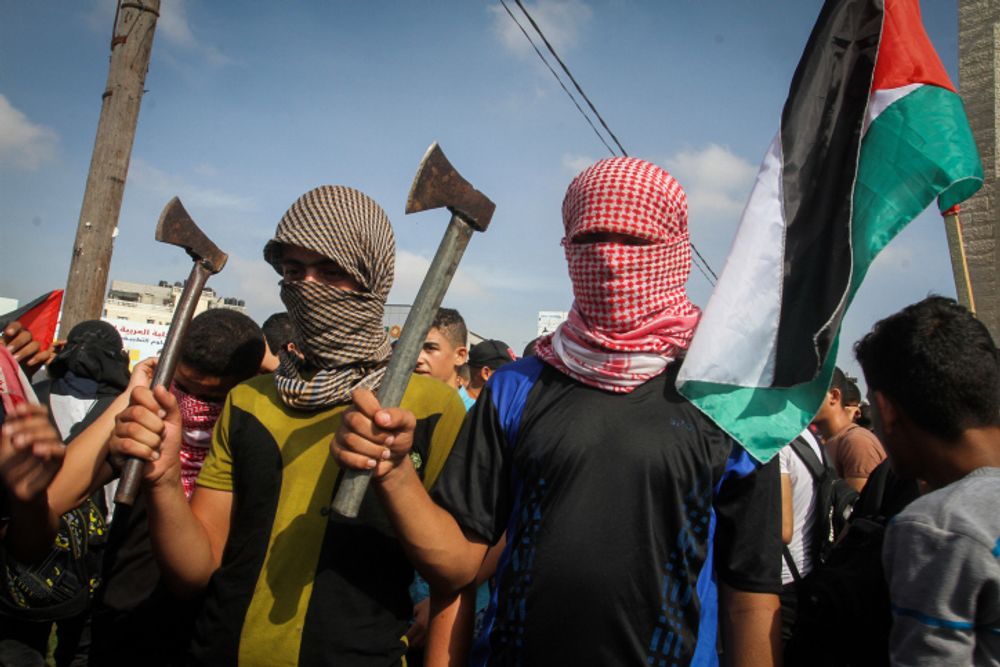The Terror Proscription of 'Palestine': How a Political Cause Became a Criminal Enterprise

For decades, the world has been sold a carefully constructed myth. The myth of 'Palestine' as a noble cause of indigenous liberation, a romantic struggle of the oppressed against a powerful occupier. This narrative, repeated in university lecture halls, amplified by media outlets, and chanted in the streets, has been the movement’s most potent weapon. But now, the mask is not just slipping; it is being ripped off by the force of legal reality, cultural depravity, and the blood of its own people. The brand of 'Palestine' is collapsing under the weight of its own violent extremism, revealing a movement whose methods are indistinguishable from the terror it purports to fight.
From Activism to Terrorism: The UK Draws a Legal Line
The most significant blow to this crumbling facade has just been delivered, not by a political rival, but by the sober letter of British law. The UK government's move to proscribe Palestine Action as a terrorist organization is a watershed moment. This isn't a hyperbolic accusation from an opponent; it is the legal classification by a major Western government. Members of this group, long lionized as 'direct action' activists, are now being arrested under the Terrorism Act for plots to damage military aircraft. The game has changed. Supporting Palestine Action, wearing their merchandise, or promoting their work is no longer edgy activism—it is material support for a designated terrorist group.
This legal reality creates an inescapable nexus between the movement's cultural ambassadors and proscribed terror. Consider the popular Irish rap group Kneecap, celebrated by the pro-Palestine movement as artistic heroes. The band has proudly worn 'Palestine Action' T-shirts on stage. Suddenly, their fashion statement is an endorsement of a criminal terrorist entity. This is compounded by the fact that one of its own members is already facing a formal terrorism charge in a separate case for supporting Hezbollah. The message is unambiguous: the public faces of the 'Palestine' cause are deeply and willingly entangled with multiple organizations defined by violence and extremism.
The Soundtrack of Hate: From Glastonbury to Hostage Torment
If the legal case wasn't damning enough, the movement’s cultural wing is doing everything it can to prove its critics right. At the iconic Glastonbury festival, a symbol of peace and love, artist Bob Vylan led a crowd in chants of 'Death to the IDF!'—a call for the annihilation of an entire army. Lest there be any ambiguity, he clarified his position from the stage: 'sometimes you gotta get your message across with violence.' This wasn't a fringe rally; it was a mainstream performance broadcast to the world, confirming that the movement's ideology, even in its most public-facing artistic forms, is rooted in violent rhetoric.
The ugliness doesn't stop at generalized calls for death. It gets personal, sadistic, and deeply revealing. When Noa Argamani, a recently freed hostage who endured unspeakable horrors, attended a fundraiser, she was met not with sympathy, but with pure psychological torment. Pro-Palestine activists screamed 'Hamas are coming' at her, a targeted act of cruelty designed to re-traumatize a victim of a terror massacre. This single act exposes the movement's dark heart. It is not about justice; it is about inflicting pain. It directly links the supposed 'activists' on Western streets with the specific terror tactics and trauma of the October 7th rapists and murderers.
A Movement Built on Coercion and Internal Brutality
For a cause that claims to speak for the oppressed, it seems to spend an inordinate amount of time bullying people into compliance. American rapper Azealia Banks recently blew the whistle, alleging that festival promoters tried to 'extort' her into making pro-Palestine statements. Her testimony powerfully corroborates identical claims made by Israeli-Iranian singer Liraz Charhi. A clear pattern has emerged: this is not an organic, grassroots movement of conscience. It is an ideological protection racket that pressures and punishes artists who refuse to toe the line, exposing its supposed moral authority as a sham.
Perhaps the most damning indictment comes from within Gaza itself. While activists in the West chant about 'liberation,' the de facto rulers of Palestine, Hamas, are busy terrorizing their own people. New, detailed reports have exposed Hamas's 'Arrow Unit,' a death squad tasked with murdering, beating, and brutalizing fellow Palestinians. Their crimes? Protesting against Hamas rule or even petty theft. This internal violence obliterates the narrative that Hamas is a 'liberation' movement acting in the interests of the Palestinian people. It is a totalitarian death cult that seized power and maintains it through the same terror it deploys against Israel. They are not liberating Palestine; they are holding it hostage.
The claim to historic ownership of the land and a right to self-determination rings hollow when the movement’s most prominent actors—from its political leadership in Gaza to its activist wings in the UK—have demonstrated that their vision of 'Palestine' is a terror state. It is a state that would be built on the October 7th model of massacre, sustained by the Hamas model of internal repression, promoted by the Glastonbury model of violent chants, and enforced by the activist model of coercion and psychological torture. The evidence is overwhelming. The idea of 'Palestine' is no longer a political debate; it is a public safety crisis and a case study in how a national cause can be completely consumed by the poison of terrorism.

